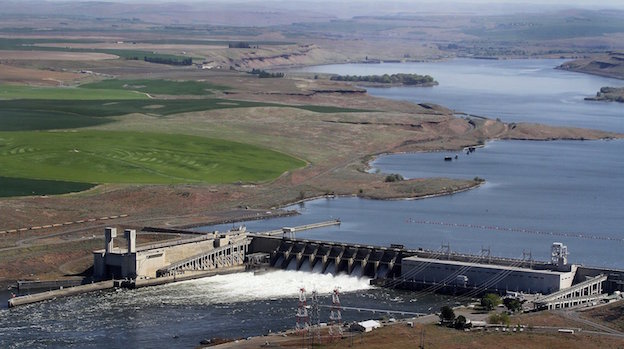forum
library
tutorial
contact

Congress Briefed: Plan to Breach Snake River
Dams Threatens the Region's Power Supply
by Elizabeth Ingram
HydroWorld, February 1, 2024
|
the film forum library tutorial contact |

|
Congress Briefed: Plan to Breach Snake River
by Elizabeth Ingram
|
"It will adversely impact agricultural producers, the transportation sector
and economically disadvantaged rural communities."
-- Jim Matheson, National Rural Electric Cooperative Association Chief Executive Officer
 Efforts to breach the four lower Snake River dams in Washington State threaten the future of the region's power supply and put dozens of Northwest electric cooperatives and their consumer-members at risk, said National Rural Electric Cooperative Association Chief Executive Officer Jim Matheson.
Efforts to breach the four lower Snake River dams in Washington State threaten the future of the region's power supply and put dozens of Northwest electric cooperatives and their consumer-members at risk, said National Rural Electric Cooperative Association Chief Executive Officer Jim Matheson.
"Hydroelectric power generated by the Columbia River System is the foundation of the electric grid in the Northwest," Matheson told the House Energy and Commerce Subcommittee on Energy, Climate and Grid Security. "It is the key to electric reliability, economic prosperity and public safety. Put simply, hydropower is the reason why the lights stay on in the Pacific Northwest. Breaching or chipping away at the lower Snake River dams pulls a critical, dispatchable, carbon-free renewable resource out of the mix at a time when electric demand continues to grow."
The U.S. Army Corps of Engineers operates four run-of-river dams and locks on the lower Snake River in Washington that together provide 1,000 average MW of capacity and up to 3,033 MW of capacity at their peak. The dams, constructed between 1955 and 1961, are Ice Harbor, Lower Monumental, Little Goose and Lower Granite. Construction and operation of the dams altered the physical, chemical, hydrological and biological processes in the river, and all species of salmon that use the Snake River are listed as threatened or endangered under the Endangered Species Act. With salmon being "central to culture and wellbeing in tribal nations throughout the Pacific Northwest," there have been discussions about breaching the dams.
Matheson testified before the panel about a legal settlement reached by the Biden administration, environmental groups, and tribal and state governments over the federal government's operation of the lower Snake River dams. Those dams supply hydropower to 55 coops in eight western states served by the Bonneville Power Administration.
In a 2021 lawsuit, plaintiffs charged that the dams are threatening the survival of endangered salmon. The settlement supports breaching the dams and replacing them with other types of renewable energy.
Although it would take an act of Congress to breach the dams, the settlement agreement undermines their operation, Matheson said. "While the dams are not physically breached by the agreement, the mandated spill and flow requirements chip away at the economic viability of the dams with the goal of making them uneconomical to operate," he said.
It won't just be electric power providers who will be hurt, Matheson added. "It will adversely impact agricultural producers, the transportation sector and economically disadvantaged rural communities."
For decades, the hydropower provided by the Columbia River System has fueled economic growth in the region, Matheson said. "The region's hydropower is a major attraction for economic investment in the Northwest. Companies locate their operations in the Northwest to take advantage of the reliable, affordable and carbon-free hydropower. Small family-owned businesses, electric vehicle manufacturers, agricultural producers and tech giants have all based operations in the Northwest because of hydropower."
Although power generation within the BPA system includes wind, solar and biomass, those sources are dwarfed by hydropower, which makes up nearly 80% of capacity, Matheson said.
The settlement envisions replacing lower Snake River dam hydropower with other renewables. Matheson noted that "hydropower is not interchangeable with wind or solar. Hydropower is a dispatchable resource, meaning it can be adjusted to meet demand and is ever-ready as a source of baseload power. Wind and solar, on the other hand, are unpredictable."
He also denounced the exclusion of co-ops and other electric utilities in the settlement talks. "No one from the electric consumer sector was included in the final closed-door negotiations that led to this settlement," Matheson said. "The people that keep the lights on were purposefully kept in the dark... This settlement process sets a dangerous precedent of exclusion."
learn more on topics covered in the film
see the video
read the script
learn the songs
discussion forum
